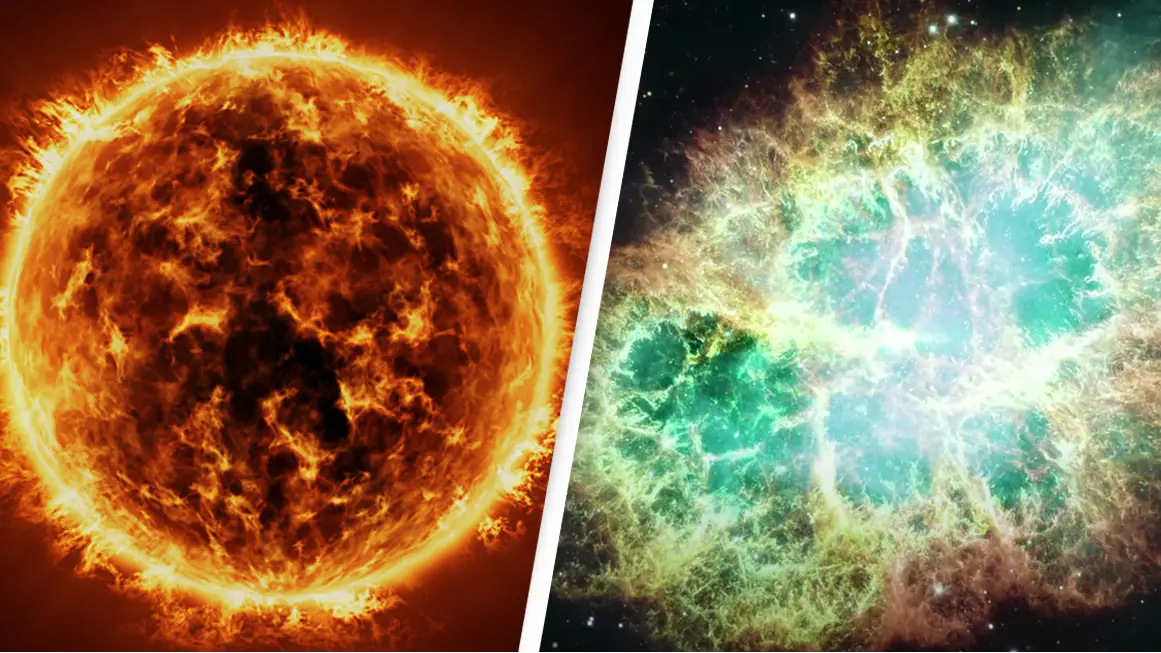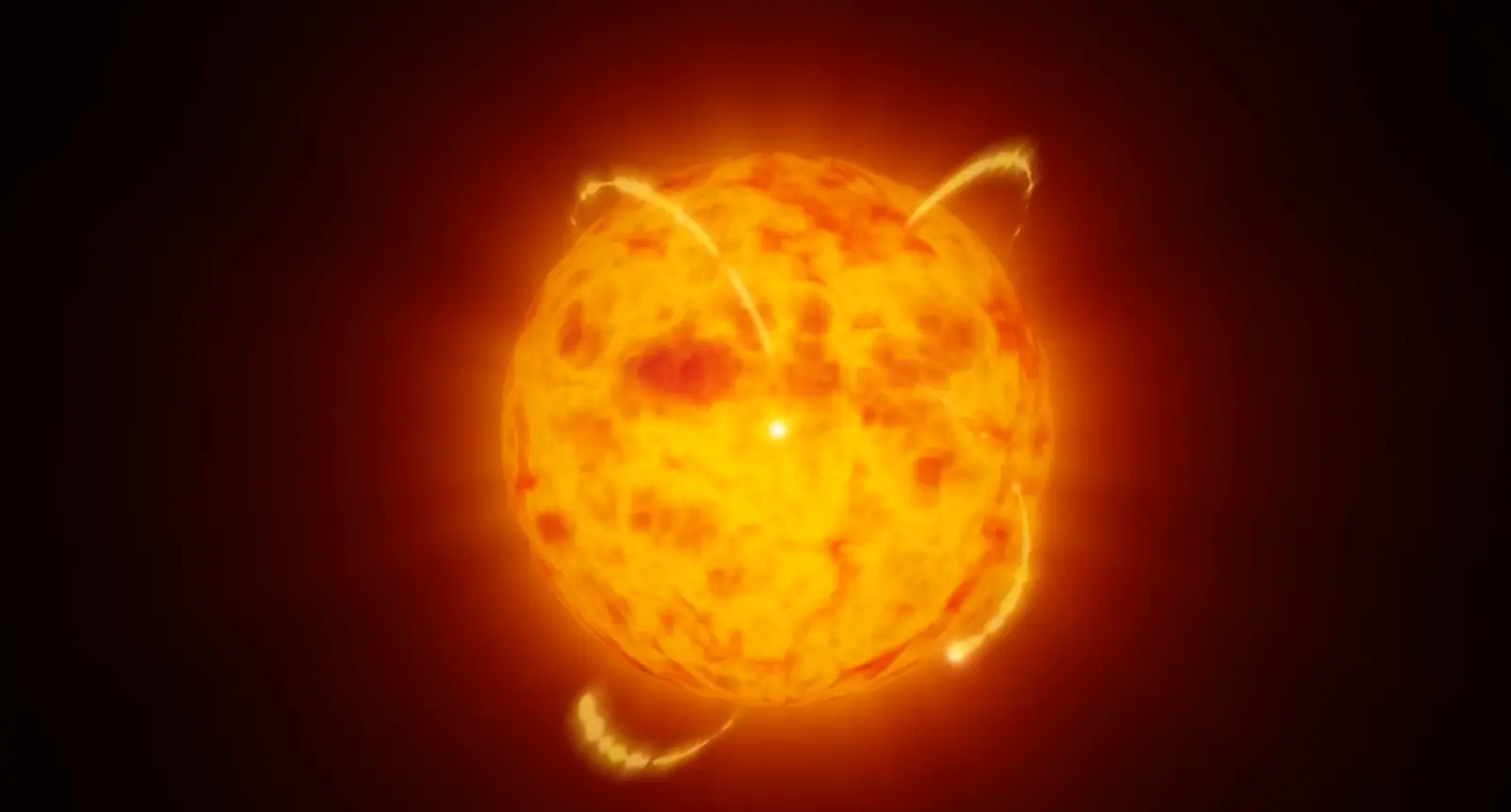
Tick, tock, tick tock… what’s that? The ‘ticking time bomb’ that is the Sun, apparently. You know, that big vital ball of fire in the sky.
Scientists have estimated how long we have left until the Sun expands into a red giant and potentially engulfs Earth, vaporizing it.
Sounds fun, doesn't it. Not to worry though - Earth will likely have become uninhabitable a long time before that.
Advert
Here's a quick science lesson. The Sun emits energy via nuclear fusion (which will be familiar for Oppenheimer fans), turning hydrogen into helium.
Eventually, helium will build up in the sun's core, which makes the fusion reaction more difficult and turns the sun even hotter.
This, as you would expect, is bad news for humans.

According to Universe Today science writer Matt Williams, the sun is getting one percent brighter every 100 million years.
This means the dinosaurs knew a dimmer sun than we do today.
Over time this will have a catastrophic impact. Our oceans will evaporate and our atmosphere will be stripped away, leaving Earth looking more like Venus, which is choked by a toxic carbon dioxide atmosphere due to a runaway greenhouse effect.
In a 2008 research paper, scientists K.-P Schroder and Robert Cannon Smith put it like this: "Long before our sun enters its red giant phase, its habitable zone (as we know it) will be gone.
"Astronomers estimate that this zone will expand past the Earth's orbit in about a billion years.
"The heating sun will evaporate the Earth's oceans away, and then solar radiation will blast away the hydrogen from the water. The Earth will never have oceans again, and it will eventually become molten."
As you might expect, humans are unlikely to stick all this out - which is a shame as it means we'll miss the sun blowing up and vaporizing the planet.

NASA's website reads: "When it starts to die, the Sun will expand into a red giant star, becoming so large that it will engulf Mercury and Venus, and possibly Earth as well."
This will happen in about five billion years, four billion years after scientists reckon the Earth will have become uninhabitable.
Now you might have noticed there's a bit of uncertainty as to whether the Sun will expand to engulf Earth, but in truth it's not looking good for the planet either way.
Astrophysicist Paul Sutter writes for Space.com: "If the sun's distended atmosphere does reach our world, Earth will dissolve in less than a day.
"But even if the sun's expansion stops short, it won't be pretty for Earth.
"The extreme energies emitted by the sun will be intense enough to vaporize rocks, leaving behind nothing more than the dense iron core of our planet."
Cheery news for a Monday afternoon, don't you think.
But before you dwell too much on the inevitable heat death of our solar system, just remember we've got at least a billion years until we need to start worrying.
Topics: Science, Space, World News